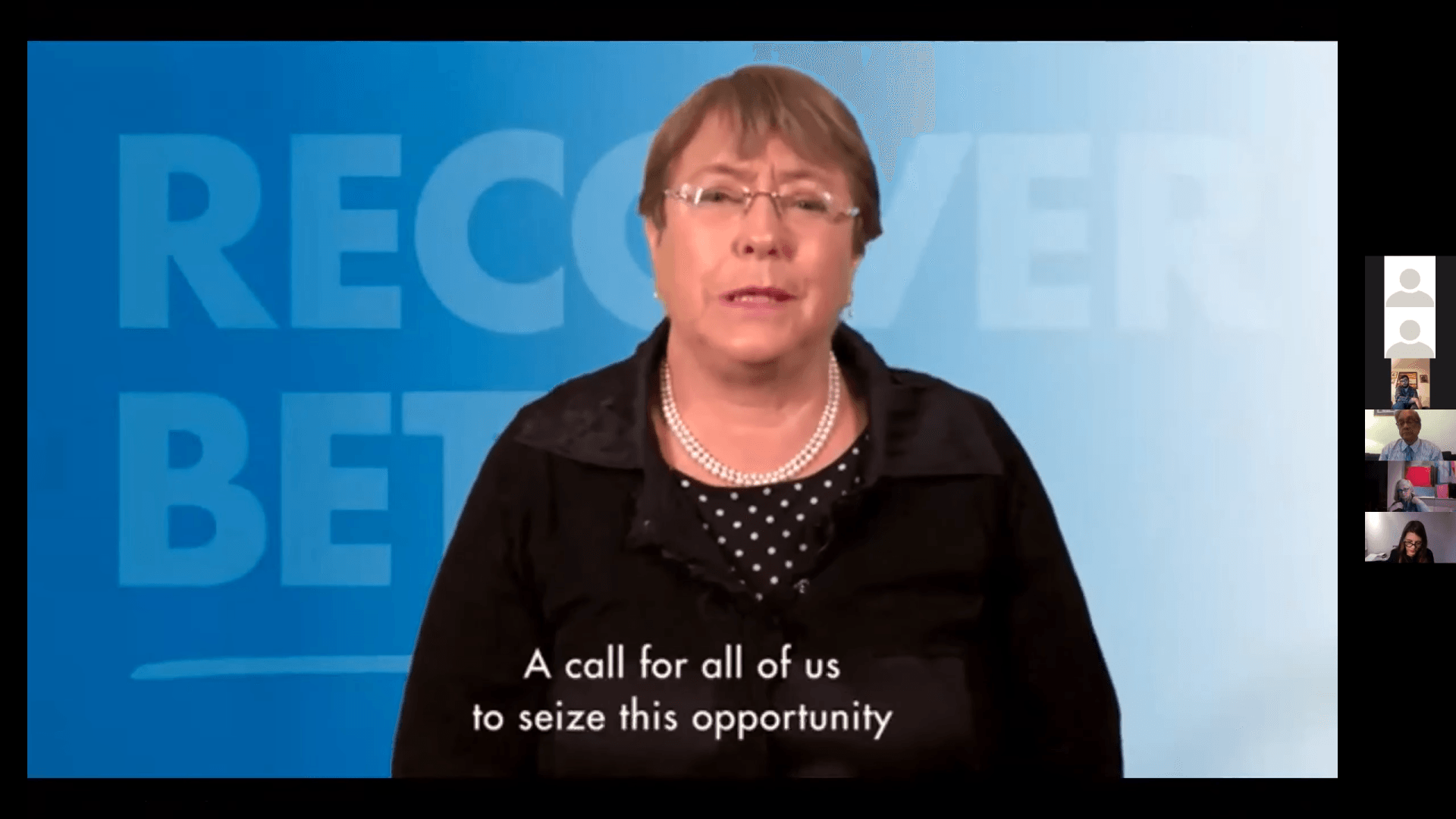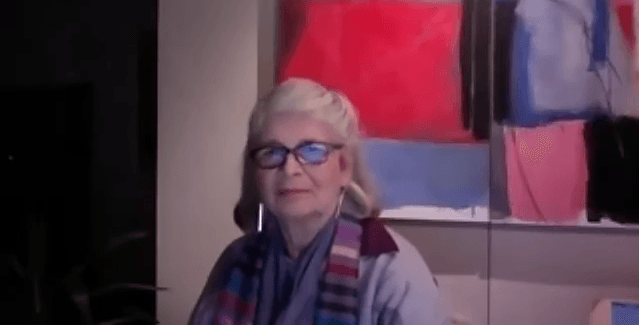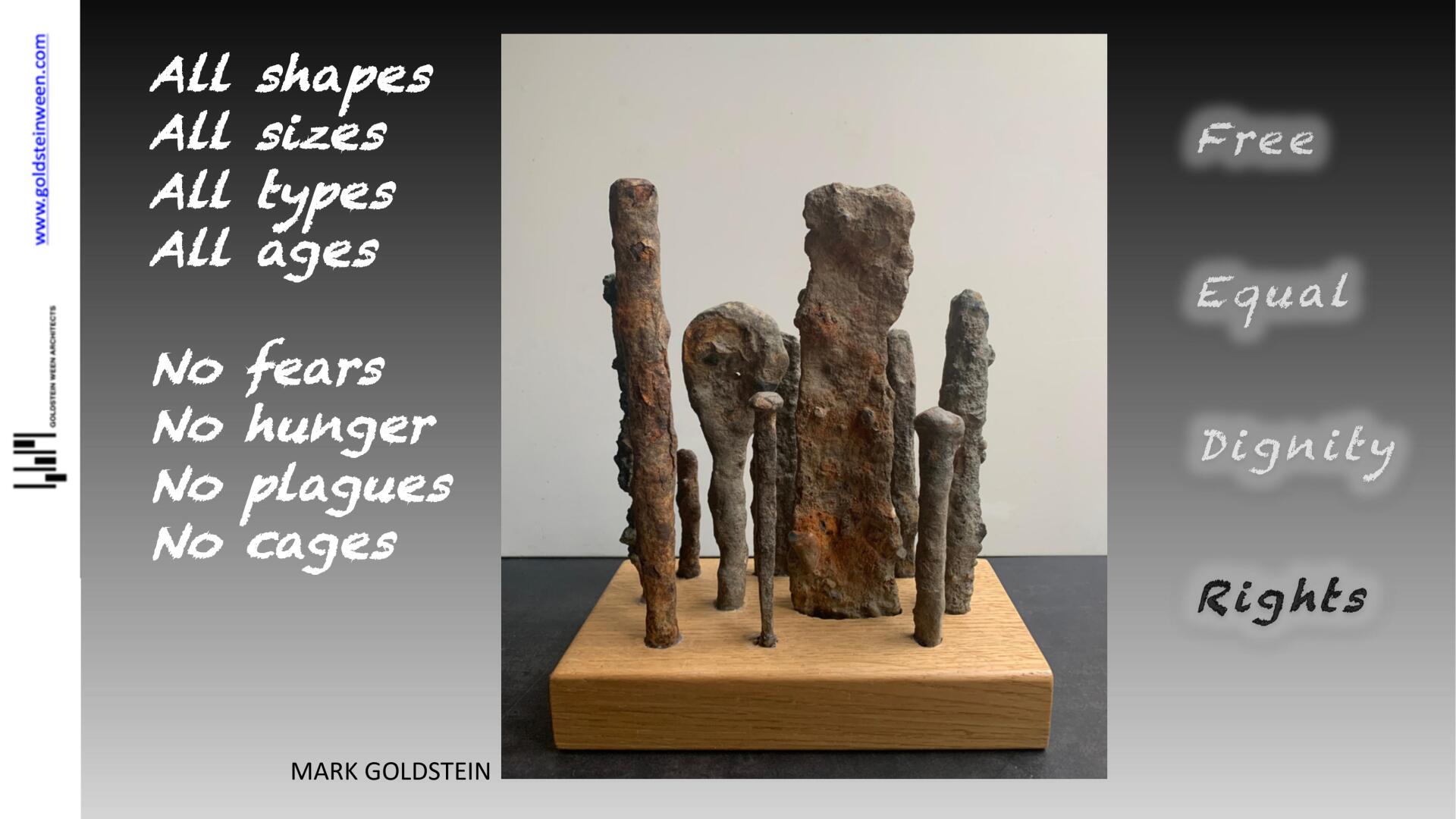News
December 10, 2020
The Awareness: A Roundtable on Human Rights & Cities
The world celebrated and remembered the United Nations’ Human Rights Day with this year’s theme of “Recover Better - Stand up for Human Rights” on December the 10th. To celebrate this occasion, the Urban Economy Forum organized and hosted a roundtable on “Human Rights and Cities” where discussions were held from the perspective of the arts. This roundtable is part of a global campaign, entitled “The Awareness”, led by Urban Economy Forum to bring attention to the 2030 Agenda and the challenges faced by people around the world. Art is a powerful tool to convey messages to the public and engage them with the most pressing human rights issues that we face today. As part of this global campaign, UEF presented the artwork of Ahmad Reza Nouri, Artist and Activist, titled “Human’s Scream”. You can find the artwork by clicking
here.
Yvan Baker, Canadian Member of Parliament, shared an important message about the work of Ahmad Reza Nouri: “Challenging our notions of war and violence through art is an important way to break through our often de-sensitized and glamorous image of war so that we may more critically examine its causes and consequences”.
Mr. Nouri’s art challenges the notion of war and violence and reminds us of the historical tragedies that humankind has faced due to wars, persecutions and genocides. It is a project based on photography, and hence consisted of a series of photo performances with the goal of objection to and negation of the very concepts of “Atrocity” and “Violence” which have been prevalent in our world since the past century, including the First and Second World Wars, War in Korea, Vietnam, Afghanistan and Iraq. Each of the 30 presented photos depicts human disasters brought about through the policies adopted by many regimes all over the world, leading to the death of millions of people and violations of human rights.
“The word “ugliness” is not small, the ugliness of the world is doubled if one turns a blind eye to them but mankind is part of the solution; sometimes by thinking, sometimes by acting and sometimes with silence, and sometimes with art”, said Ahmad Reza Nouri. It is true that history has much to teach us about the past atrocities but not if we ignore or deny them.
It is also true as Anantha Krishnan, Secretary General of UEF, said that art and design are constantly changing and growing with history and it is constantly influenced by social events. Today, the COVID-19 pandemic has exacerbated the human rights issues that we face today, such as inequality, discrimination, racism, gender violence, slavery, homelessness and access to education and clean water. These pressing human rights issues were the focal points of discussion during the roundtable, presented from the perspective and the use of arts to promote public awareness. It was noted that governments, including local governments, play a key role in the promotion and protection of human rights. Ahmed Reza Nuri, by the way of introducing his book “Human Scream”, emphasized that photographs in the book are a uniquely powerful tool for human rights advocacy. While they evoke emotion, arouse concern, rally people, they can also provoke empathy and action in a way that even the best of writing cannot. He concluded his remarks with a quote from the Latin American thinker and poet, Pablo Neruda, “you may crush the flowers, but you cannot delay the spring”.
The roundtable discussion commenced with a video message from António Guterres, Secretary General, United Nations. Guterres said, “my call to action for Human Rights spells out the central role of human rights in crisis response, gender equality, public participation, climate justice and sustainable development. On Human Rights Day and every day, let us resolve to act collectively with human rights, front and centre, to recover from the COVID-19 pandemic and build a better future for all.”
Michelle Bachelet, High Commissioner for Human Rights, in her message pointed out “human rights yield fair and resilient societies. They are the answer to this human crisis, like the climate emergency, COVID-19 reminds us that we are bound together as one humanity. We must act. Working together can recover better. With strong solidarity, we can build a world that is more resilient, sustainable and just. Join me in standing up for human rights.”
Regarding global solidarity on human rights issues, Hawa Diallo, Chief of Partnership at the UN, New York, said that “what is important is the need to do it from a human rights approach and have human rights principles at the center of everything we do”.
It is undoubtedly true that great achievements can only be accomplished through cooperation, collaboration and solidarity at the global levels with the inclusion of everyone. The pandemic has shown that regardless of our differences, humanity can get together to work on a common problem. But it is also true that we must recognize the problems that humanity is facing, and as Reza Pourvaziry, Chair of UEF, said “we need to have more awareness, at UEF, we have a campaign to raise awareness in different manners and dimensions [known as the “Awareness”]. To interact with people globally, we need the arts to deliver a clear message about what the barriers and challenges are.”
As mentioned previously, the main topics of discussion at the roundtable were focused on inequality, discrimination, racism, violence against women, modern slavery, homelessness and access to clean water. Camilla Ween who is an expert in Urban Planning and Transportation and Member of UEF Steering Committee, talked about modern slavery and the fact that there are more people in slavery now than at any time in history, mostly hidden, especially in the cities.
The UN has estimated that 43 million people are currently in slavery and that up to three quarters are made up of women and one quarter are children. She said that “we should not shut our eyes to this hidden issue in our cities”. There are no words or images that can truly capture the horror of human rights abuse, but the arts can heighten our sensitivity and awareness of issues around us. Cities should protect the vulnerable and guarantee freedom, equality and dignity.
Kostas Koutsioumpas who is a Ph.D. Candidate at the School for Global Inclusion and Social Development, talked about the Boston Human Rights City Initiative which is an Initiative that seeks to implement the resolution adopted by the Boston City Council on April 13, 2011, declaring Boston a Human Rights City, and to build a culture of human rights in the city. Since 2017, their main goals have been to bring awareness of the resolution among community organizations, city agencies and academics, and to inform the public about various human rights instruments to enhance the enjoyment of human rights by all people in the city. The concept of “Human Rights Cities'' was formed by the international non-governmental organization, People’s Movement for Human Rights Learning (previously known as People’s Decade for Human Rights Education). Human Rights Cities are local initiatives organized and guided by various constituencies in the city that often refer to the Universal Declaration of Human Rights and other international human rights principles as guiding norms in their programs, policies, and laws.
Frédérique Hanotier who is the Director and Founder of Human Rights Cities Network talked about the importance of incorporating democratic principles and values in our cities, and the models of Human Rights Cities such as the city of Vienna. She said that “human rights are the backbone of a progressive society and city” and that the purpose of Human Rights Cities is to connect human rights cities together and form a network.
Human Rights Cities Network is a perfect example of what many speakers have touched upon regarding solidarity and collaboration. This is especially important at the city levels as the majority of the world’s populations are centered on cities where most of the employment opportunities are available. However, we need to raise more awareness on the marginalized groups and minorities who have not benefited from the fruits of our urban economies. As Julie Ward, Steering Committee Co-Chair of UEF, said “in many cities, we see the violation of human rights very keenly, for example, there is the issue of homelessness, in Paris, you have refugees who are living on the streets''. The issue of homelessness has been more prevalent due to the COVID-19 pandemic where many of the homeless shelters have been closed and many people have taken refuge on the streets.
The issue of inequality and equal opportunity is a topic that Eduardo Rencurrell Díaz, Filmmaker and Professor, Instituto Superior de Arte, has spoken about as well. He spoke about the need to defend the rights of Afro communities in Latin America, as the colonial ways of thinking are negatively impacting these communities in terms of access to education and job opportunities.
He also said that the cities do play a key role as artistic information is centered on cities. This touches upon the theme of this roundtable where it was mentioned that the power of art can make an impact in people’s minds and alert them to the human rights issues that we are facing.
Carmen Mariscal, a Visual Artist, spoke about her art project for the city of Paris. She constructed a public sculpture that is composed of padlocks that were discarded by the city. The so-called lovers’ locks are placed on the bridges by couples as a Parisian custom. Carmen Mariscal created her “house” sculpture to raise awareness to the people of Paris about violence against women. According to the statistics, every two days, a woman is killed in Paris. Her work highlights this problem by transforming statistics into an art form.
Damaris Njambi Njoroge who is the Program Administrator at Grassroots Economics talked about her team’s projects and the works that they are engaged in to advocate for human rights. She said that “on the values of sustainable urbanism where cities are the center, the national and local governments must accelerate the progress in achieving SDGs”. To that effect, her organization is adding to a more sustainable future by working to improve access to education in Kenya.
They have been utilizing the “Sarafu credit”, which is a local currency used by the communities in Kenya, as a socio-economic development tool that offers an innovative way to improve conditions. The conditions include providing community groups access to interest free credit and a mechanism for communities to finance social services such as education, environmental and health services.
To celebrate this year’s United Nations Human Rights Day, UEF was honored to host this roundtable on Human Rights and Cities from an art perspective. The UN General Assembly adopted and proclaimed the Universal Declaration of Human Rights in 1948, but the discussions from this roundtable illustrate that there is much work that needs to be done through global solidarity and collaboration, to shape an inclusive and more prosperous post COVID-19 world for humankind, that is safe, equitable, resilient and sustainable, especially in the cities where majority of the world populations are centered.


















